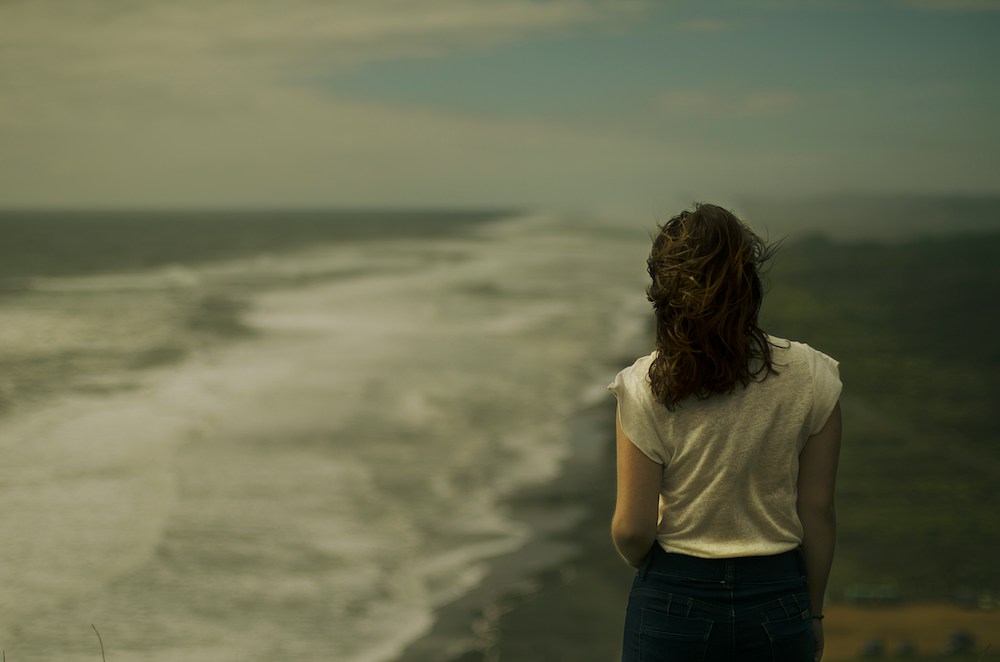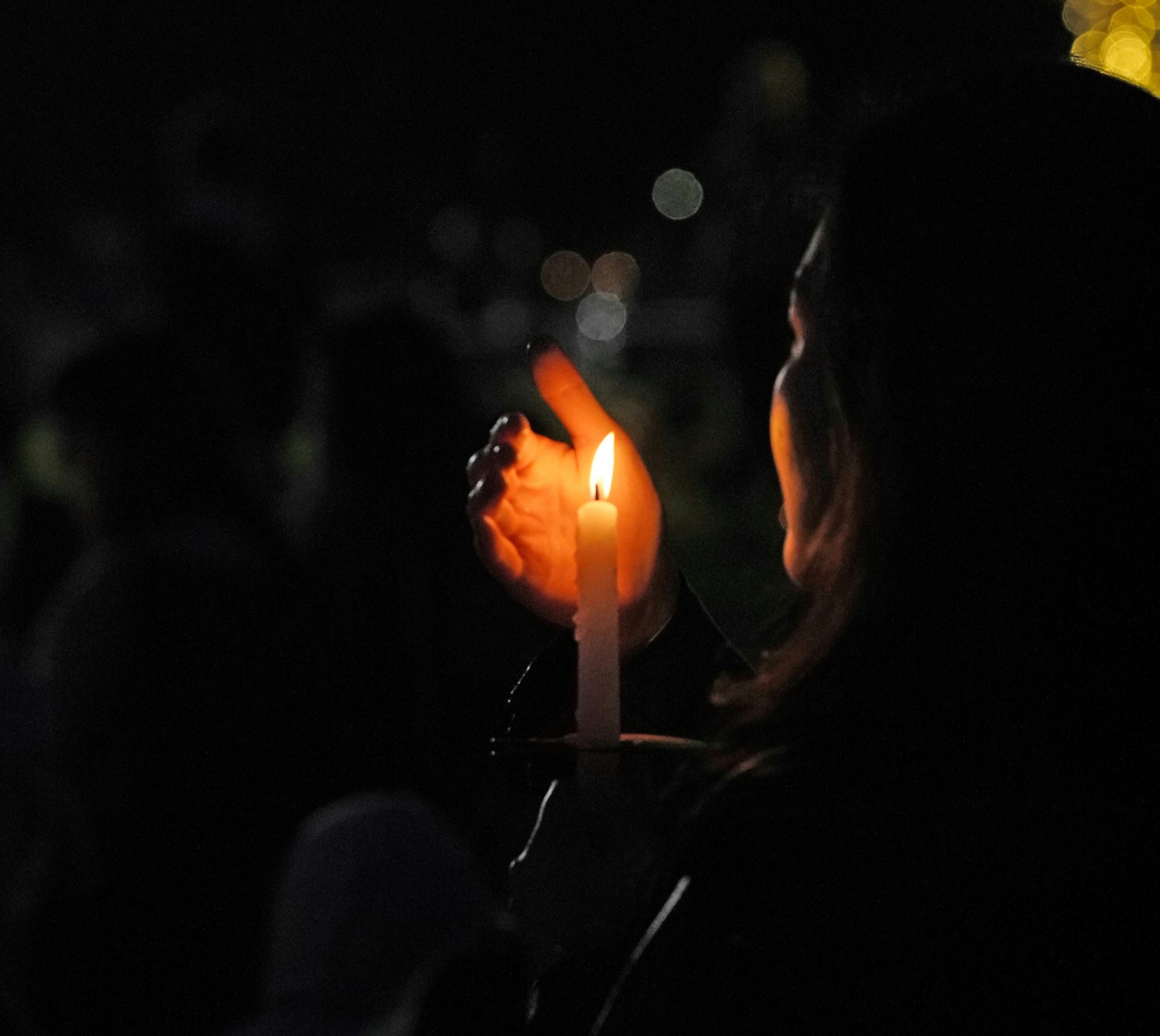Lit Mags
The Couple That Grieves Apart, Stays Together
“Every Damn Star That Shines,” a short story by William Wall, recommended by Doire Press

Introduction By John Walsh
He found himself there by a happy accident, unable to fly home from a residency because of the volcanic ash cloud from the Eyjafjallajökull volcano in Iceland, which grounded many flights over Europe in 2010. He lived in a little apartment in Rue du Poilu in the narrow streets of old town. ‘Poilu’ is a slang term for a French infantryman of the First World War.
This is where Every Damn Star That Shines is set, but “the nucleus of the story,” William told me, “is pure fiction.” The two characters, Ali and Bob, are staying in a flat on Rue du Poilu, of course, and they are swimming in that deep bay too early in the year when even the Mediterranean is cold. In a recent RTE Culture program Arena, William talked of how he associates deep water with emotional or psychological depths. The author grew up by the ocean and most of his mother’s family had been at sea for generations, so it’s not surprising that bodies of water haunt all his books, including his new novel, Grace’s Day.
William himself considered it a quiet, unspectacular story. But grief and love are universal experiences.
When Ali swims she encounters the vastness and profundity of the sea and imagines the sound of the great whales resonating with her loss. And when she emerges it is to see Bob, her beloved husband watching her attentively from the shore and she knows that he will be there to enfold her as she comes ashore. A profound, quiet, nurturing love exists between the couple. When they sit on the sand afterwards she says: ‘Bob, I want to say it feels good to be alive but more than that. I want to say it’s good to be alive with you.’
When he sent this story to us at Doire Press, it instantly became one of our favourites. William himself considered it a quiet, unspectacular story. But grief and love are universal experiences and Every Damn Star somehow strikes that human chord. Which is to say, we know it will strike a chord with you too.
– John Walsh
The Couple That Grieves Apart, Stays Together
William Wall
Share article
“Every Damn Star That Shines”
by William Wall
When I cried out there in the water it was just a sudden rush, something broke, it wasn’t anything I was thinking about before. It was a surprise. A shock in fact. I walked out into the sea as far as my waist and then I just stood there as if I didn’t know what to do. In that instant I really didn’t know. Then I noticed that I was crying and making noise. I think it was the temperature of the water, strange as that may sound. It was cold. The sea here is drop-dead beautiful and I swim a lot but it gets deep maybe ten feet from the shore. You stand at the edge and you take a step forward and then it’s nearly ten feet down. The charts show that it is, as they say, profound, and because of the shape of the bay most of the fish and plankton of this closed sea wash in here at some time. It’s warm and rich in summer, but at this time of the year the depth makes it very cold. It shines in the morning and in the evening and sometimes when the moon rises it shines then too. The moon shines in our window. Bob likes to sit and look at it in the dark sometimes. But he reads on a Kindle so it doesn’t matter so much to him. I need light, light, light. God, I need the sun and the moon and every damn star that shines. Bob was standing there on the beach when I broke. I didn’t have to look around because I knew it. He was standing there in his rust-red Slam bathing costume watching me with those knowing eyes of his. He knew. He knew what was happening and he didn’t come out to get me. That’s part of his wisdom. He could have come out but he never does. You’re a swimmer, he always says, I just flop around on the edge of happening. He says I go too far. I swim out beyond the buoys that stop the yachts from coming in. Bob grew up in New York. I was the water to his rock. When I came in from Vancouver he was there. I met him in my first lecture. It was like he was always there waiting for me to come in, or I was always journeying towards that spot where he stood.
When I started to cry I wasn’t aware at first. That was a strange thing. I thought I was just looking at the sea. In fact I didn’t think at all, I was just looking. Then I became aware of the noise I was making and that people in the water — two old French men who swim every day, and a younger woman who swims at weekends — were looking at me strangely. In fact they were alarmed. The French woman swam a steady breaststroke in my direction. Her eyes watched me steadily. Her hair was wet. It looked like a smooth black helmet that reached to her shoulders and trailed in the water. She didn’t say a word. I heard the two men talking. They were swimming too. They always swam together. I suspect they were talking about me. They were straining their necks to keep their faces dry. Like dogs keeping their heads up. I could hear their breathing coming towards me. And then I heard my own voice. It was coming from low down somewhere that I didn’t know was there. What does it mean? These things are signs, always signs. What does it signify?
What I do is I launch myself head down in the water. Underwater I make no sound. I hold the sound inside though I feel it moving in me like a wave. I swim underwater for as long as possible. I keep my eyes open. I see the bright dead ocean floor of the Mediterranean drifting by, and then I’m out onto the glassy deep where nothing happens. If this was a different sea I would hear whale sounds and they would be the exact equivalent of the sound-wave in my body. The great whales calling to each other. I figure, that’s what I am. But who am I calling for?
Bob knows, of course.
When I surface he’s there. He knows I’m going to surface. He never fears for me. He’s watching me. He’s taken his sunglasses off. He waves that uncertain wave of his. He’s not uncertain at all but it’s the way he waves. He mouths the words, Everything ok? I nod my head. I’m ok. We’re not two Americans going to make spectacles of ourselves on a French beach in wintertime. I put my head down and stroke away, out deep. It’s only March and there are no boats to worry about. I swim right out into the rade. Out there I can see as far as the Upper Corniche Road. I can see the last snow on the high peaks. We saw snow fall on these narrows, falling on the beach and whitening above the waterline, falling in the olive groves and the roofs, whitening the red tiles. It was so beautiful it would break your heart. It fell for a night and a day and the people here said they had never seen such a snowfall in their lifetimes. They all came out to see it. They closed the school and the shops on the middle and high roads. People were excited. So were we. Bob and I have seen plenty of snow, but the place makes all the difference. That’s something I’ve worked out about snow. And maybe a lot of other things. Places make things happen.
But when I started to walk back I couldn’t do it. I felt naked. I know tears make everyone feel that way, but I was ashamed of the noise. Maybe if I understood it I might be able to bear it, but I didn’t. It just came out of me. First I was swimming. Then I stopped in about five feet something. It was up to my chest. I couldn’t go any further. I was afraid it would start again. Waves don’t move, things circulate inside the wave, but the wave never moves on. Think of a rope. When you flick it a wave travels along it, but the rope stays in the same place. The tension and the twist remain the same, it’s the same rope always. This is the substance of what I spent my life studying — waves and particles and what we laughingly call fluid dynamics. Not anymore.
Of course I came all the way out of the water in the end. It was too cold to stay there except as some kind of petrified figure from mythology. I don’t qualify. And Bob was waiting with the towel. We didn’t speak. I stepped out of the water and turned and stepped backwards into his arms and he enclosed me in the rough dry warmth of the towel. That’s the way it’s always been. My pirouette, his embrace. We get along.
We sat on the sand. It’s more fine gravel here, or at least a very coarse sand. It felt good. The sun felt good.
Bob, I said, I want to say it feels good to be alive but more than that.
I want to say it’s good to be alive with you.
He laughed but he knew.
Do you remember that Godard film we saw a few weeks ago? Le Petit Soldat?
Yes, I do.
You know there’s a moment when he’s being tortured, though they’re not torturing him at that exact time, but he’s in the bathroom chained to that damned thing on the wall, and he just looks straight at the camera. Do you remember that?
Yes, I do.
Well, his face looks completely different to any other shot in the film. I was thinking about that as we walked down here and I realised it may be the only time he looks at the camera in the entire film. He’s always looking down or at someone else. I believe that’s a very important shot. I can’t work out what it’s saying. I realise now I don’t understand that film at all. Out there on the water I saw his face.
It’s because he reminds you of Harry.
I looked at him. How did he know that? I was never going to tell him.
It’s because of what he went through, he said.
We gathered our things. The French men were sitting on the sand with their backs to the sea-wall. The woman was towelling herself. She looked fit and well. I wondered if she lived here all year round. Something told me she came from somewhere else.
Bob, do you remember when we went to see Susan that time? The last time, before we came over here?
He nodded. I thought she was holding it together well. The kids were great.
You were in the TV room watching the game and I offered to help with the cooking. Remember? Well, we got talking and I saw that she was getting angry and I didn’t want the kids to hear, so I closed the kitchen door. Harry’s old jacket was hanging on the back.
His hunting jacket?
We both laughed. Harry never hunted but every couple of years he invested in the latest Columbia Sportswear camouflage jacket. He liked walking. I used to say, What are you hiding from, Harry? You don’t want camouflage, you want to be seen, someone is going to shoot you someday by mistake.
So his jacket was there, he said. She forgot to throw it out. Or maybe she couldn’t bear to.
No, I said, she forgot it.
The sun was beginning to drop behind the town. It sets early here because of the height to the west, and then it gets cold. We walked up there once in the early days, an hour’s walk, and stood at the old fort on the hill watching the darkness moving on the sea from Capt Ferrat to Cap D’Antibes. That evening for the first time I said to Bob something I’ve often said since: Bob, do you realise where we are? And he replied, We’re doing the grand tour two hundred years too late. And we both laughed. I grew up on a logger’s float-house on the Strait of Georgia. My dad was a logger until I was nine and then he had his accident. Harry and I used to collect clams and keep them in a galvanized tub and feed them on oatmeal until they got fat. I never eat clams now.
She got so angry, I said. She was shouting at the hunting jacket. I said to her, Susan you have to let go, and she said, I never close that damn door. I just never saw it. Bob, you should have seen the look on her face.
Bob said nothing.
Well, she took that coat down fast. She went out back and put it straight into the garbage. That was the worst moment. I watched her open the can and get it right in there. There was something violent, you know? Something hard.
Suddenly Bob was angry. He stopped walking. He was trudging through the sand with his head down. Now he took his sunglasses off and turned full on to me.
What do you expect, Ali? For Christ’s sake he could have done something. We all have to face it. He could have saved himself, that’s the thing. That’s what gets Susan angry. He didn’t even try.
He looked at me for a while. I couldn’t think of anything to say. Then he put those damn shades on and we walked up the sand and onto the sidewalk. We didn’t say anything. I was trying to cope with what was inside. It felt like an animal had slipped in out of the dark.
Do you think we could move here, Bob?
He shook his head. Maybe before the crash. Not now.
His pension was down big-time. His college put it in some kind of fund that went with Bear Sterns or about that time. We stopped following it. Harry’s business went the same road. We all know about derivatives now.
What I keep thinking about is this: What went through his head at the last minute. I can see his face as clear as if he was here this minute. I can see his eyes.
Don’t think about it.
But Bob, he never owned a gun. He couldn’t even hunt with dad.
Jesus, Ali. Stop.
It comes back. All the time.
Bob shook his head. Who knows? It’s impossible to know.
Maybe we shouldn’t have come down here, Bob. We blew a lot of money on this.
As we turned to climb the steps that brought us up to Rue Du Poilu where our room was, I said, Bob I’m frightened.
He took my hand and held it tightly.
The street was dark already. The light was on in the butcher shop ahead. I was cold. I pressed close to him. In that moment, for no good reason, and though he was not a swimmer, I felt he would save me, should the need ever arise.








